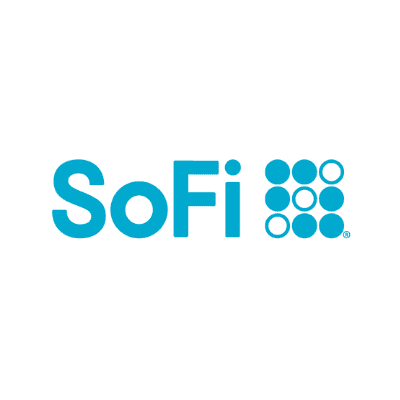Micro-investing apps like Acorns make it easy for anyone to invest, even if you live paycheck-to-paycheck.
But is Acorns the only micro-investing app, or do you have options?
Acorns is an excellent app for beginning investors, but there are other apps like Acorns that offer benefits too.
What Is a Micro-Investing App?
Micro-investing apps let you invest money in small increments, sometimes less than a dollar.
Most micro-investing apps let you link a debit card to the app and round up your purchases to the nearest dollar. Next, they sweep the change into an account and invest when you reach a specific threshold, usually $5.
Micro-investing apps make investing easy. You don’t have to think about it because the app rounds up your purchases and automatically invests the spare change.
In addition, most micro-investing apps don’t require large opening deposits, so you can easily invest even if you don’t have much money.
All About Acorns
Acorns is one of the most popular micro-investing apps. It started with the concept that you can invest your ‘spare change.’ You link your most used debit card to the app, and it automatically rounds up your purchases, so you have money to invest.
How Acorns Works
Acorns, like most robo-advisors, asks a series of questions when you sign up to gauge your risk tolerance, timeline, and financial goals. Then, it uses this information to create your portfolio, invest in ETFs, and rebalance your portfolio as needed to reach your financial goals.
Features
- Automatically invest by rounding up your purchases
- Set up automatic contributions
- Expert portfolios built by leading investment firms
- Offers retirement and custodial accounts
- Fee-free banking with 2-day early direct deposit, online banking, and built-in automatic savings
- Earn bonus investments by shopping at partner retailers
Pros
- Anyone can invest with as little as a couple of pennies
- Professionally built portfolios based on your risk tolerance
- Set-it-and-forget-it account; you don’t have to do anything after setting up your account
- User-friendly interface
- Offers plenty of educational material
Cons
- Fees can be high, especially if you have a low balance
- Doesn’t offer access to human advisors
- Bank account doesn’t pay interest
Cost
Acorns has three tiers as follows:
- Bronze $3/month – Includes a personal investment and retirement account, banking features, and cash-back investments
- Silver $6/month – Includes everything in personal and add a 1% IRA match on new funds
- Gold $12/month -Includes everything in personal plus and adds custodial investment accounts for kids; also adds a 3% IRA match and ability to add individual stocks to your portfolio
To create an account, click ‘Get Started’ and provide the requested information including,your email address, a created password, and personal identifying information. You’ll also link your funding account to your new Acorns account to start your round-ups for investments.
11 Best Acorns Alternatives
The best apps, like Acorns, offer low minimum investment requirements, many investment options, and many features investors need when choosing an investment platform.
Like Acorns, look for apps with low fees that offer the opportunities you want to invest in, whether it’s ETFs like Acorns or something more robust, such as cryptocurrency or options.
1. Robinhood
Robinhood was the pioneer in commission-free trading and still stands strong today. It started with the purpose to make investing easy, much like Acorns.
Not only did they eliminate trading commissions, but they offer investments in stocks, options, ETFs, and crypto.
You can invest with as little as $1, making it as accessible as Acorns. You can also purchase fractional shares, allowing you to invest in your favorite companies no matter how much money you have.
Features
- IPO Access: Be one of the first people to invest in new companies
- Automatic Investments: Like Acorns, you can set up recurring investments, so you always invest and never forget
- Options Trading: If you’re ready to level up your investment strategies, consider options trading
- Investing on Margin: If you want to increase your investing power, consider investing on margin (borrowing to invest)
- Crypto Trading: Buy, sell, and store crypto safely on the platform
Investors can also consider Robinhood Gold which offers the following:
- up to 5% APY on idle cash
- Margin investing starting at 8%
- Level II Nasdaq market data
- Professional Research
Cost and Availability
The platform is free, but a Robinhood Gold membership is $5/month.
To sign up, you’ll create an account and provide your personal identifying information. It takes only a few minutes, but Robinhood must verify your identity before you can begin investing, which can take a little while.
Pros:
- Has 24/7 customer service
- Offers stock recommendations to get you started
- Offers plenty of educational material
Cons:
- No technical analyses
- No robo-advisor settings
2. Public.com
Like Acorns, Public.com doesn’t charge trading commissions, and they don’t require a minimum investment amount. Unlike Acorns, though, Public doesn’t charge monthly fees. Instead, they offer the option to ‘tip’ your broker.
Investors can trade stocks, ETFs, and cryptocurrency on Public.com and have the option to follow their favorite traders to get trading ideas.
Think of it like Venmo. Investors who set their accounts to public allow everyone to see their trades, allowing them to get inspiration from others.
Features
- Invest in anything:com offers more investment options, including stocks, ETFs, crypto, luxury goods, art, real estate, and music royalties.
- Recurring investing: Set up automatic investments weekly, bi-weekly, or monthly to have that set-it-and-forget-it mentality.
- Company-specific analyses: Advanced investors can dive deep into the research and analyses of the companies they invest in.
- Push-through notifications:com sends notifications in real-time on market updates to give investors a thorough understanding of the market’s performance.
- Access to live shows:com offers Public Live, where you can hear from experts about the market and investments.
Cost and Availability
Public.com is free, but you can subscribe to the Premium version for $10/month if you want advanced analytics and research.
To sign up for Public.com, click ‘sign up’ and follow the prompts. You’ll start with your email and a created password, and then enter your personal identifying information.
Pros:
- Doesn’t charge trading commissions
- Doesn’t use payment order flow for revenue
- Offers access to fractional shares
- Offers automated dividend reinvesting
Cons:
- The Premium version cost is high compared to Acorns
- No retirement account option
3. Stash
Stash is a personal finance app similar to Acorns. It offers hands-off investing and banking; however, investors can invest in ETFs, stocks, and crypto, whereas Acorns only invests in ETFs. Like Acorns Family, Stash offers custodial accounts for kids.
Stash allows investors to choose fractional stock shares, using spare change to invest in them. Stash also offers taxable and retirement accounts, allowing you to reach your financial goals.
Features
- Automated investing for a hands-off approach: All you must do is answer questions and fund your account, and Stash does the rest
- Diversify your portfolio: You can invest in stocks, ETFs, and crypto to balance your portfolio
- Earn stock when you shop with your Stock-Back card: The Stash debit card pays up to 1% of your purchases back in stocks of the companies you purchased from
- Automatic round-ups: Like Acorns, Stash automatically rounds up your purchases to add to your investment portfolio
Cost and Availability
- Stash Growth ($3/month) – Includes a taxable and retirement account, Stock-Back card, 2-day early access to your paycheck, and $1k in life insurance
- Stash+ ($9/month) – Includes everything in growth plus 1% stock-back on purchases, and access to custodial accounts for kids
To sign up for an account, click ‘Get Started’ and follow the prompts. You’ll identify yourself and provide your banking information to fund your account.
Pros:
- Offers DIY and automated investing
- Automatically rounds up purchases
- Offers fractional shares
- Includes the option to invest in crypto
Cons:
- No interest earned on the bank account
- Robo-advisor doesn’t manage retirement accounts, only taxable accounts
- No access to human advisors
4. M1 Finance
M1 has a lot of similar features to Acorns. The self-proclaimed ‘super app’ offers the option to invest, borrow, save, and spend. Like Acorns, it includes automated investing options.
M1 calls its portfolios ‘pies.’ You can choose from more than 80 existing pies. However, if you prefer to DIY your investments, you can create pies, enabling you to choose the stocks and ETFs you’ll invest in.
Features
- Automated investing: Set up automatic transfers to your portfolio, and Dynamic Rebalancing will ensure your portfolio remains balanced based on your goals.
- Access to different accounts: After opening an individual investment account, you can open a retirement or custodial account.
- Borrowing: You can borrow against your account to increase your investment power and potential for capital gains.
Cost and Availability
$3 monthly fee
Click ‘Get Started’ to start investing and enter your email and created password. Then, follow the prompts to identify yourself and link your funding account to begin investing.
Pros:
- Allows joint investment accounts
- Allows fractional share purchases
- Perks like cashback credit card
- No trading commissions
Cons:
- Not much educational material for beginning investors
- Monthly account fee
5. Betterment
Betterment is an all-in-one personal finance app that offers banking, investing, and retirement planning. Like Acorns, Betterment asks a handful of questions when you sign up to create the most profitable portfolio to reach your goals.
Also, like Acorns, Betterment uses low-cost ETFs to help you reach your financial goals.
You can set it and forget it, letting them handle your investments for an annual management fee. Betterment also offers a checking (spend) and savings account.
Features
- Automated investing: Betterment builds custom portfolios using ETFs and crypto, automatically rebalancing your portfolio when it gets off course.
- Tax-smart tools: Betterment uses tax-loss harvesting to minimize your tax liabilities on capital gains and watches for tax efficiency overall.
- 12 portfolios: Betterment has 12 portfolios to choose from, each that caters to different investors and goals
- Banking products: Betterment offers a no-fee checking and high-interest savings account to help your money grow
- Extensive retirement planning: Betterment focuses on your future, especially your retirement, helping you plan accordingly to meet your goals
Cost and Availability
Charges 0.25% of assets under management annually once you set up $250 recurring deposits or reach a balance of $20,000. Before that, there is a $4 monthly fee.
To sign up for Betterment, click ‘Get Started’ and answer the questions. Answer them honestly so they create the proper account for you and help you reach your financial goals. Then, continue answering the personal identifying questions, link your bank account to fund your investments, and begin your journey to financial wealth.
Pros:
- Offers retirement accounts with retirement advice and tax-saving strategies
- Has socially responsible investment options
- Offers cryptocurrency investments
Cons:
- Charges an annual fee for assets under management
- Investors have little say in their investments
6. SoFi
SoFi is another micro-investing and personal finance app that rivals Acorns. While its minimum to invest is $5, that’s still much lower than most robo-advisors and investing apps require.
SoFi offers two ways to invest – DIY or automated investing. With DIY investing, you choose your investments and, like Acorns, can trade stocks and ETFs with no commission fee. However, SoFi offers access to fractional shares with a minimum investment of $5.
Features
- Active investing – Choose stocks and ETFs for your DIY portfolio. You also have the option to invest in IPOs or fractional shares to round out your portfolio. So you can invest whether you have spare change or several hundred dollars.
- Automated investing – If you prefer a hands-off approach, automated investing creates and manages your portfolio with no management fee.
- Crypto – Trade 30+ cryptocurrencies and store them on the secure SoFi platform.
- Retirement accounts – Like Acorns, SoFi offers automated retirement accounts, including traditional, Roth, and SEP IRAs.
- SoFi checking – Like Acorns, SoFi has a linked checking account with no account fees and early access to direct deposit. However, SoFi checking pays up to 2.5% interest on balances in accounts with direct deposit.
Cost and Availability
There are no fees to get started investing with SoFi. To create an account, click ‘Invest Now’ and follow the prompts to enter your personal information, login credentials, and account funding information.
Pros:
- Offers the option to open a joint investment account (many online brokerages don’t)
- Offers access to human advisors for support or investment questions
- No fees on automated accounts
- Active investing stocks and ETFs trade for no commissions
Cons:
- Doesn’t offer tax-loss harvesting
- Doesn’t offer socially responsible investments
7. Qapital
Qapital is a set-it-and-forget-it persona finance app helping you take control of your financial life. Offering five portfolios to cater to every type of investor, and they offer round-ups like Acorns.
If you prefer to set up automatic contributions, you can create a rule and automatically have your funds transferred to your account to take advantage of dollar-cost averaging.
Features
- Autopilot investing: Set up your automatic contributions and let your portfolio do its job
- Portfolio recommendations: You tell Qapital your risk tolerance and timeline, and they match you with the appropriate portfolio
- Creative rules: You can set up creative rules, such as Guilty Pleasure, which transfers a specific amount to your investment account when you spend at your chosen retailers
- Savings goals: You can set specific goals, see your progress, and constantly strive for financial freedom
- Budgeting tools: Qapital can help you divvy your paycheck for necessities and fun spending, ensuring you never go over your limits, and you can set rules to save for the future
Cost and Availability
Qapital has plans that cost $3, $6, and $12 monthly
To sign up for Qapital, click ‘Get Started’ and answer the questions honestly regarding your short-term goals. Next, provide your phone number, and they’ll text a link to download the app and get started.
Pros:
- Couples can sync accounts and have joint goals
- No hidden fees
- No minimum balance required
Cons:
- No free plan
- Interest rates paid on cash balances is minimal
8. Webull
Webull is a great investment app for beginners or experts. Like Acorns, there’s no minimum investment requirement, and you can open an individual taxable or retirement account. In addition, Webull doesn’t charge trading commissions and offers a wide selection of investment options, including stocks, ETFs, options, and cryptocurrency.
Features
- Powerful platform: Webull offers intuitive tools that are simple enough for beginners but offer advanced investors what they need too. Investors can trade on the web, desktop, or mobile device.
- Extended trading hours: Investors can trade pre-hours (4 – 9:30 AM ET) and after-hours (4 – 8 PM ET).
- Paper trading: Test your new skills in real time with fake money to see how your choices would perform.
- Custom screeners: Easily filter stocks by your criteria to find the best options.
- Access to technical indicators and charting tools: Provides as much objective information as possible to help your investing decisions.
Cost and Availability
Free except for investing on margin or fees charged by regulatory agencies
Click ‘Sign Up’ to start your account and follow the prompts, starting with providing your phone number.
Pros:
- Allows fractional shares
- No trading commissions
- No minimum investment requirements
- Powerful analytic tools
Cons:
- No robo-advisor option
- Not much educational support
- No mutual funds
9. Plynk
Plynk makes it easy to invest with as little as $1, similar to Acorns. The app walks you through the process by asking simple questions to gauge your risk tolerance, timeline, and goals. Along the way, they educate beginning investors, removing the overwhelm of learning how to invest.
Unlike Acorns, Plynk isn’t a robo-advisor. Instead, you’ll direct your investments yourself, but Plynk offers hand-holding to help you make smart investing decisions.
With Plynk, investors can choose stocks, ETFs, mutual funds, and four cryptocurrencies.
Features
- Plynk Explore: By answering a few simple questions, Plynk will curate a selection of investments for you to choose from that meet your ideas and goals
- Plynk Think: This educational hub educates you as you go so you understand investing and make smart decisions
- Recurring Investments: Set your investments on autopilot and automatically contribute to your account using the dollar-cost averaging method, which means you invest whether your assets are up or down
- Gift Card Exchange: Turn unredeemed gift cards into investments by trading them into Plynk
Cost and Availability
Investors can start for free but may pay a $2 monthly fee in the future.
To get started, download the Plynk app from the iOS or Google Play store and follow the prompts to create an account.
Pros:
- You can invest with as little as $1
- Uses easy-to-understand terminology so beginners don’t get overwhelmed
- Can exchange gift cards for investments
- Low cost
Cons:
- No retirement accounts
- The app may not always be free
10. Chime
Chime doesn’t offer investments like Acorns, but it’s a personal finance app with a high-yield savings account that helps your money grow. With Chime, you can get paid two days early if you set up direct deposit, avoid overdraft fees with Spot Me, and pay no monthly fees.
Features
- Pays 2% APY on Chime Savings
- Spot Me covers your overdrafts of up to $200 with no fees
- The Chime Secured credit card helps you build credit
- Automatic savings regularly transfer money from checking to savings to help your money grow
Cost and Availability
Chime is free, and it takes only a few minutes to sign up. Click the ‘Sign Up’ tab on the home page and follow the prompts. Within minutes you’ll have a personal finance app, checking, and savings account to get your finances under control.
Pros:
- Fee free banking app
- Pays a higher APY than most brick-and-mortar banks
- Provides access to 60,000+ ATMs
Cons:
- Doesn’t have any investing features
11. Greenlight
Greenlight is a chore and investment app for kids. If you subscribe to Greenlight Max, your kids can invest in stocks and ETFs for as little as $1. Because they are minors, parents must approve every investment transaction. This gives kids the freedom to learn about investing and try their hand at it, while parents oversee the process and ensure the investment decisions make sense.
Features
- Educational tools: Kids can explore educational content on stocks and ETFs to learn investing at a young age and start building their capital
- Fractional shares: Kids can purchase fractional shares of their favorite companies with as little as $1
- Real-time notifications: Parents get notified in real-time of investing transactions and can approve or decline the transactions in real-time
- No commission fees: Kids and parents pay no commission fees beyond the monthly fee
Cost and Availability
Plans range from $4.99 to $14.98 per month depending on the savings reward and additional features
To sign up, enter your phone number and click ‘Sign Up.’ Next, follow the prompts to create the custodial account for your child(ren).
Pros:
- Offers kids an option to start investing
- Parents have complete control to ensure kids make good investing decisions
- Kids learn financial responsibility and important financial principals
- Kids can earn 2% – 5% interest
Cons:
- Parents can invest, but it’s geared more toward kids
- The monthly cost is high
Choosing an Alternative to Acorns
Acorns offer many opportunities to invest using your spare change, but if you’re looking for something more robust or DIY options, you may consider Acorns alternatives.
When looking at Acorns alternatives, pay close attention to fees, types of investments and accounts, minimum investment requirements, and customer service options.
For example, if you’re interested in investing in options or alternative assets, you won’t find that with Acorns but might with some Acorns alternatives. The key is to narrow down what you want and find an investing app that offers the investments at a low cost.
Learn More:
Is Micro-Investing a Good Idea?
Micro-investing may seem silly to some. How could you reach your financial goals by rounding up small purchases, right?
Here’s the truth.
Micro-investing isn’t just about investing your spare change. It’s a way to get you started, but it shouldn’t stop there. Acorns, for example, was created to help everyone start investing, no matter how little money they had.
Think about it, are you more likely to start investing when you need $1,000 minimum or $1? If you knew you could invest with just $1, you’d likely start much earlier, right?
That’s the key to investing. But, of course, the earlier you start, the more money you’ll have, so it’s imperative to invest as early as possible, even if it means sweeping spare change into an account and investing it.
The hope is that you’ll continue investing more than your spare change when you see your money growing. Acorns and the Acorns alternatives mentioned here offer automated investment options.
Automated investments mean you set up regular contributions to your investment account, no matter how little. When you start, you might contribute only a small amount, but as you gain financial security and get a better handle on your budget, you may be better equipped to invest a larger portion of your monthly income.
Consider micro-investing as the first step to growing your wealth. Every penny you save will be worth more as time goes on. Combining these efforts with an employer-sponsored 401K will make even more headway toward your financial goals.
So while micro-investing shouldn’t be the only way you invest, it can be a great first step to growing your portfolio.
The Bottom Line
Acorns and other micro-investing apps help you reach your financial goals faster. Even when it feels like you aren’t saving much, it adds up over time and helps you reach financial security. So whether you use Acorns or one of the apps like Acorns I suggested above, be consistent in your efforts to save and invest in your future.







No comments yet. Add your own